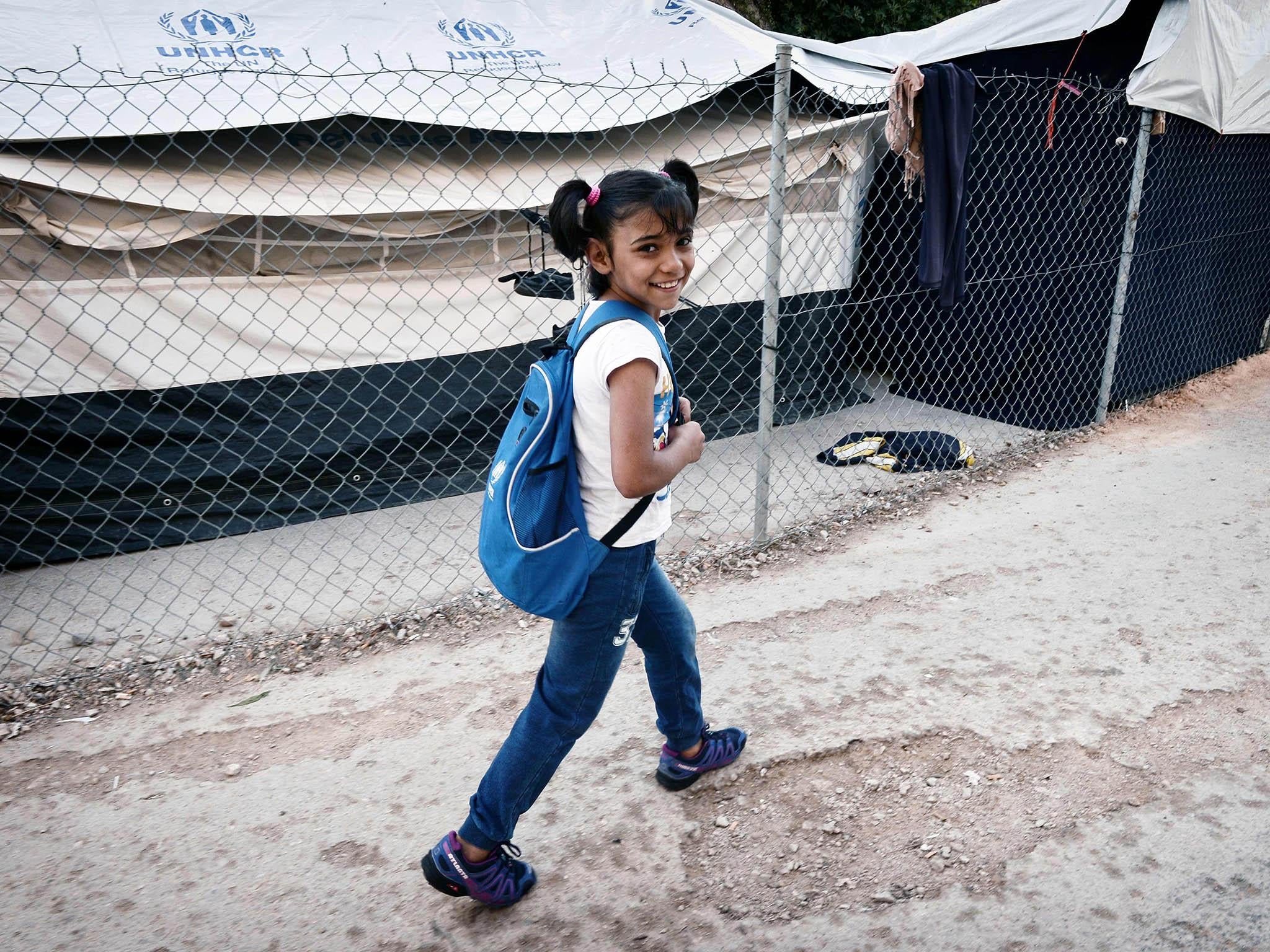Inside the school trying to give refugee children a second shot at learning
Many refugee children miss out on vast swaths of education as they journey through Europe

There are more than 60,000 refugees and migrants in Greece – thousands are children, including about 2,000 who are entirely on their own – many under the age of eight. More than half of these unaccompanied minors – 1,200 in all – are staying on the islands of the eastern Aegean.
So it could be presumed that running a school for these children with a team of just 20 volunteers is near impossible. However, Nicholas Millet, a British volunteer who founded the school, that has been operating on the island of Chios since May, insists it is all worth it to bring a stitch of normality back to children’s lives. “We’re not here to replace mainstream school,” Nicholas told AFP. “We provide an academic curriculum but for us, this is about children feeling like children again.”
The school operates out of a converted restaurant in the island’s capital, running classes for ages six to 16, and promotes acceptance of other national backgrounds, hygeine, cooking and even going to the supermarket as well as the curriculum. Unicef recently estimated that refugee children in the region had missed about 20 months of school on average, meaning the Swiss NGO's work could never be more vital.
However, project organisers are clear that their lessons cannot be seen as a substitute for a formal education. Following the success of their documentary (released in January, titled ‘Be Aware and Share’), the project is already reaping important rewards for both the children and their community. “We’re trying to provide structured activities for children, so they can see the basics of what it would be like if they went to a school. We’re not trying to be a school.”
“It’s been amazing for the parents,” Millet told The Independent. “Many of them have been sitting here for months, watching their children doing nothing, every day. And for many of them, their children are the reason they left their home in the first place. Maybe some of them were starting to feel like they’d failed in their duty to their children.” On a recent visit one of the island’s deputy mayors called the school “the most positive thing that’s happened on this island in months”, while a visiting delegation from the European Commission was similarly impressed.
“They’re engaged, they’re very engaged,” says Millet, “and we get new kids joining, older kids who didn’t come before.”
“They have clearly shown signs of progression. In terms of their English language, the way they behave, they’re developing at a very quick rate. In the mornings, they’re always so excited. They’re queuing up and waiting for us before we even get there. And you can walk around the camps later on and see them doing their homework.”
For the Swiss NGO Be Aware and Share (BAAS), which runs the school, the real aim is to see these children in a position to enter mainstream school in Greece. Millet told The Independent in June that he hoped the children would be able to enter into education in September. “These kids have a right to a normal education, they shouldn’t be neglected. It’s something that, eventually, the state is going to have to take responsibility for.”
On the mainland, the Greek Education Ministry last week began after-hours classes for some 1,500 refugee children in 20 schools in the country. However, there remains no classes on offer at schools on the islands, where large populations of refugees are living in camps.
The Education Ministry insists the reason for this is the short-term stay of many children on the islands – whose parents have applied for asylum and are waiting to be relocated, and on hold as their transfer could be imminent.
However, this has been met with protest from local people. Despite assurances by state officials that no child will be allowed to join the programme without vaccination, objections have also been raised at a few other schools on the mainland. Last week, police had to escort refugee children into a school in Oraiokastro near Thessaloniki because about 40 Greek parents were protesting outside.
The Education Ministry has said more than 10,000 refugee children will enter Greek schools on the mainland by the end of October.
Join our commenting forum
Join thought-provoking conversations, follow other Independent readers and see their replies
Comments
Bookmark popover
Removed from bookmarks